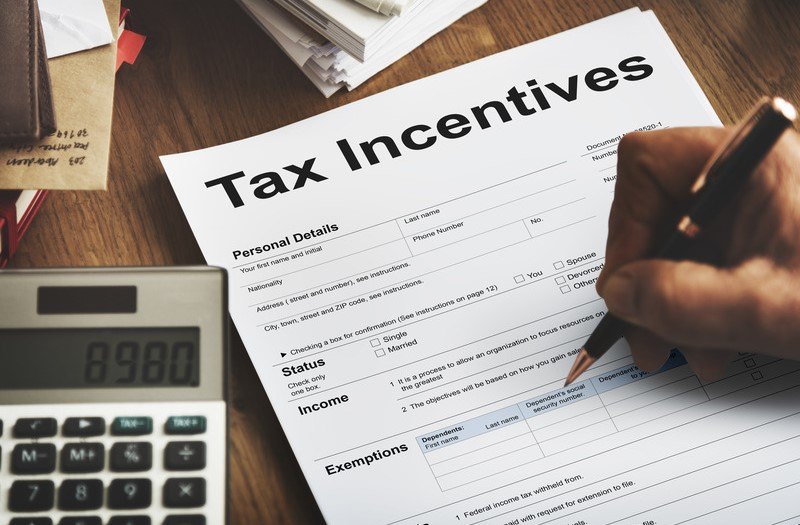
Double Taxation Agreement in Marbella Real Estate: A Game-Changer for Foreign Investors
Nida Zafar | · 14 min. read
- Table of contents
- What is a Double Taxation Agreement (DTA)?
- How Double Taxation Works for Non-Residents
- How the Double Taxation Agreement Benefits Real Estate Investors
- Why DTAs are a Game-Changer for Foreign Real Estate Investors?
- Limitations of DTAs for Marbella Real Estate Investors
- Practical Steps for Foreign Investors to Maximize DTA Benefits
- Final Thoughts
Ever wondered if you're paying more tax than necessary on your Marbella real estate investment? If you’re a foreign investor, you might be facing taxes not only in Spain but also in your home country.
Fortunately, the Double Taxation Agreement in Marbella real estate can save you from double taxation, ensuring that you don't lose out on profits. These agreements are set up between countries to prevent you from being taxed twice on the same income, whether it’s rental earnings or capital gains.
Marbella, known for its luxurious properties and Mediterranean lifestyle, is a prime destination for real estate investors like you. However, without proper tax planning, the allure of Marbella could be dampened by the complexities of international taxes.
That’s where Double Taxation Agreement in Marbella real estate becomes a game-changer, reducing your tax burden and offering the clarity you need to enjoy a more profitable investment. In this article, we’ll learn how these agreements work, why they’re essential, and how they benefit foreign investors like you.
What is a Double Taxation Agreement (DTA)?
A Double Taxation Agreement (DTA) is a treaty between two countries that ensures individuals and businesses do not pay taxes twice on the same income. This is particularly relevant for international investors who earn income, such as rental income or capital gains, in a foreign country like Spain while still being tax residents in their home country.
Without these agreements, income earned from real estate in Marbella could be subject to taxation in both Spain and the investor's home country, significantly reducing overall returns.
Grasping the concept of double taxation goes beyond simply knowing that it exists; it’s about understanding how it can influence your financial decisions and investment strategies. To explore this topic further, it's useful to refer to official resources from Spain.
The Agencia Tributaria (Spanish Tax Agency) provides clear guidelines on how double taxation is managed, especially for foreign investors. Additionally, Spain’s Ministry of Finance offers detailed explanations on how Double Taxation Agreements (DTAs) function to protect non-residents from paying taxes twice, ensuring investors are fully informed about their tax obligations and rights.
How Double Taxation Works for Non-Residents
Imagine you own a stunning rental property in Marbella. Sounds perfect, right? But here’s the catch: as a non-resident, Spain taxes the income you earn from renting it out. Then, your home country might also want a piece of that pie, taxing you on the same income. Without a Double Taxation Agreement in Marbella Real Estate, you could be taxed twice, slashing your profits.
Example: Let’s say you're from the UK and own a rental property in Marbella. You’ll pay taxes on that rental income in Spain. But the UK might tax you on that same income as well. Without a DTA in place, you’d see a significant dent in your earnings—hardly the kind of return you were hoping for.
The Role of DTAs in Real Estate Transactions
Now, here’s the good news: Double Taxation Agreement in Marbella real estate ensures that you don’t have to worry about paying twice. These agreements protect you by determining which country has the right to tax your income and how much. Essentially, they create a clearer, simpler path for your investments.
DTAs are the lifeline that makes investing in Marbella real estate not only attractive but also financially smart. By cutting through the red tape and tax complexities, they give you the confidence to dive into the Marbella property market, knowing that you won’t lose out due to unnecessary taxes.
How the Double Taxation Agreement Benefits Real Estate Investors

Investing in Marbella’s luxury real estate is an exciting opportunity, but understanding tax implications is essential. The Double Taxation Agreement in Marbella Real Estate protects you from paying taxes twice, ensuring your profits aren’t diminished.
Let’s break down how DTAs help foreign investors maximize their earnings and simplify tax complexities.
1. Tax Credits and Exemptions
When you earn income from renting out your property in Marbella, Spain taxes you on that income. However, with the Double Taxation Agreement in Marbella Real Estate, your home country typically provides tax relief, meaning you won’t pay taxes on the same income twice. Here’s how it works:
- Spain taxes your rental income based on the local tax laws.
- Your home country offers tax credits or exemptions for the amount you’ve already paid in Spain.
- This reduces your overall tax burden, allowing you to keep more of your rental profits.
For instance, if your rental property generates €20,000 in income, Spain will tax you. Without a DTA, your home country would also tax that €20,000. But with a DTA, you can claim a credit for the taxes paid in Spain, significantly reducing your tax bill back home.
2. Capital Gains Tax Relief
Selling a property in Marbella can result in substantial profits, but capital gains taxes could eat into those earnings. Luckily, the Double Taxation Agreement in Marbella real estate ensures that you won’t pay taxes twice on the capital gains. Here’s how it works:
- Spain taxes the capital gain from your property sale, as the property is located there.
- Your home country acknowledges the tax paid and typically provides a credit or exemption, ensuring you don’t pay twice.
- This allows you to keep a larger portion of your profits.
For example, if you sell a property for €1 million and make a profit, Spain taxes your gain. Without the Double Taxation Agreement in Marbella real estate, your home country might also impose capital gains taxes. But with a DTA, only Spain taxes the gain, allowing you to maximize your earnings.
3. Legal Certainty and Transparency
One of the key benefits of the Double Taxation Agreement in Marbella real estate is the clear legal framework it provides, making your tax obligations predictable. DTAs specify which country has the right to tax your income, which:
- Eliminates uncertainty about how much tax you owe and to whom.
- Helps you plan your investments more accurately, as you can forecast your tax liabilities.
- Ensures a fair tax treatment, preventing unpleasant surprises.
This clarity allows you to focus on growing your property portfolio, knowing that your taxes are under control. Whether you’re renting out your property or selling it, you can make long-term financial decisions with confidence, thanks to the protection offered by the DTA.
4. Avoiding Withholding Taxes
DTAs often reduce or eliminate withholding taxes on cross-border payments, such as dividends, royalties, and interest. This is especially relevant if you're earning income from financing or receiving dividends from your real estate investment.
Typically, Spain imposes a withholding tax on these types of income, but under a DTA, the rate may be significantly reduced, ensuring you retain more of your earnings.
5. Clarity and Reduced Administrative Burden
DTAs simplify tax compliance by establishing clear rules on which country has the primary right to tax specific types of income. This reduces the risk of errors in tax filings and can save you from the administrative burden of dealing with conflicting tax laws. You won’t have to worry about being penalized for non-compliance with unfamiliar foreign tax regulations.
6. Fostering Long-Term Investment Growth
DTAs provide a sense of stability and predictability in taxation, which is crucial for long-term financial planning. By ensuring that you are not over-taxed, they allow you to reinvest profits back into your property portfolio or other investments, promoting growth and maximizing returns over time.
Hence, with these benefits of the Double Taxation Agreement in Marbella real estate, you can optimize your tax liabilities, making your investments more profitable and sustainable.
Why DTAs are a Game-Changer for Foreign Real Estate Investors?

Double Taxation Agreements (DTAs) are a game-changer for foreign real estate investors in Marbella. This is because of the following reasons:
1. Boosts Investment Potential
When it comes to investing in Marbella, the Double Taxation Agreement in Marbella real estate is a critical tool for foreign buyers. By reducing the burden of paying taxes twice, DTAs lower overall tax costs, making real estate investments in this luxury market far more attractive.
Specifically, DTAs ensure that you are not taxed both in Spain and your home country on the same rental income or capital gains. This relief means you keep more of your earnings, increasing the profitability of your investment.
Greater profitability also comes from the way Double Taxation Agreement in Marbella real estate reduce capital gains taxes. When you sell your property, Spain typically imposes capital gains tax. However, without a DTA, your home country could tax you on that same profit.
Thanks to DTAs, your home country acknowledges the taxes you’ve already paid in Spain, allowing you to avoid double taxation and retain more of your earnings from the sale.
2. Encourages Foreign Capital
The presence of Double Taxation Agreement in Marbella real estate plays a key role in attracting foreign capital. High-net-worth individuals and institutional investors are drawn to Marbella not just for its luxurious properties but also for the financial advantages that DTAs provide.
As you ensure a streamlined and fair tax process, Spain makes it easier for investors to bring their capital into the real estate market without worrying about excessive taxation. This is particularly appealing for large-scale investors who are looking to diversify their portfolios globally.
Marbella’s reputation as a luxury real estate hub has flourished, in part, due to the benefits of DTAs. The tax certainty and reduction in tax burdens have contributed to the growth of high-end developments and increased foreign interest.
Investors can confidently invest, knowing they won’t be subjected to unfair tax obligations, which fosters a stronger influx of capital into the market.
3. Simplifies Tax Compliance
The Double Taxation Agreement in Marbella real estate also simplifies one of the most challenging aspects of international investment: tax compliance. Navigating the tax systems of two different countries can be complicated, but DTAs provide a clear legal framework that makes it easier to meet tax obligations.
For example, when filing Form 210 in Spain, which is required for non-residents to declare their income, the DTA ensures that this information is properly communicated to your home country’s tax authorities, preventing the need for duplicate filings or confusion.
As you align tax regulations between Spain and your home country, DTAs reduce the risk of legal complications. You no longer have to deal with conflicting tax rules, and your tax liability is clearly defined, which is particularly helpful when managing multiple properties or large-scale investments. This streamlined process allows you to focus on growing your investments rather than worrying about compliance issues.
Limitations of DTAs for Marbella Real Estate Investors
While Double Taxation Agreements (DTAs) offer significant tax relief for foreign investors, there are certain limitations that investors in Marbella’s real estate market should be aware of to fully manage their financial expectations.
Local Taxes Still Apply
Even with the benefits of a Double Taxation Agreement in Marbella real estate, you cannot avoid certain local taxes. DTAs do not cover taxes like property tax in Spain (also known as the Real Estate Tax (IBI))or garbage collection fees, which you must pay as a property owner. These local taxes are based on ownership rather than income, so they remain your responsibility. For example, if you own a property in Marbella, you will still need to budget for these recurring expenses, even though the DTA protects you from double taxation on rental income or capital gains.
Not All Countries Have DTAs with Spain
Unfortunately, not every country has a DTA with Spain. If your home country does not, you could face double taxation in full. This situation can dramatically impact your investment returns. However, there are strategies to mitigate this burden, such as exploring tax credits or deductions in your home country. Consulting with a tax advisor who understands both international and Spanish tax laws is essential if you're investing in Marbella real estate without DTA protection.
Complexity in Claiming Benefits
While Double Taxation Agreement in Marbella real estate offer considerable advantages, claiming those benefits can be complex. Navigating the process of obtaining tax credits or exemptions requires careful documentation. You must provide proof of tax payments and file the necessary forms on time, both in Spain and your home country. Working with tax professionals is crucial to ensure you meet all legal requirements and fully benefit from the DTA, reducing any risks of errors or missed opportunities.
Practical Steps for Foreign Investors to Maximize DTA Benefits

To fully unlock the potential of DTAs, foreign real estate investors in Marbella can follow a few practical steps that ensure they maximize their tax benefits and secure higher investment returns.
Work with Tax Experts
To fully maximize the advantages of a Double Taxation Agreement in Marbella real estate, it's critical to work with a tax expert. A professional with expertise in both Spanish and international tax law can help you navigate the complexities. They will guide you on how to properly claim exemptions or credits, especially when dealing with rental income or property sales.
For example, a tax advisor can ensure that you file the right documents and minimize your tax liability, allowing you to focus on your investment.
Ensure Proper Documentation and Compliance
Filing the correct tax forms is essential to avoid complications. In Spain, you must submit Form 210 for non-residents to declare your real estate income. Your home country will also require documentation to prove that you have already paid taxes in Spain.
This paperwork is key to claiming tax credits. Keep detailed records of your tax payments, real estate transactions, and any necessary forms. Proper documentation helps you avoid delays or issues when claiming the benefits of a Double Taxation Agreement in Marbella real estate.
Plan for Long-Term Investment Returns
DTAs aren't just about short-term tax relief; they can also be a valuable part of your long-term strategy. Incorporating the Double Taxation Agreement in Marbella real estate into your financial planning allows you to grow your portfolio with confidence. Strategic tax planning will help you maximize your returns and minimize your tax liabilities over time.
As you consistently use the protections offered by the DTA, you can reinvest your profits into new properties and expand your real estate footprint in Marbella.
Final Thoughts
Investing in Marbella’s real estate is more than just a financial decision—it’s a chance to unlock new opportunities with the right strategies in place. DTAs don’t just simplify the process; they open doors for you to make the most of your investment, turning potential tax challenges into manageable stepping stones. These agreements offer you the ability to keep more of your profits, reinvest with confidence, and focus on what matters—growing your portfolio.
By maximizing DTA benefits, you gain an edge, not just in saving on taxes but in ensuring long-term success in a thriving market. The key is proactive planning, using expert advice to navigate complexities and leveraging DTAs to their full potential. Marbella’s real estate market is dynamic, and with DTAs, you are better equipped to thrive in it, ensuring your investments are not just profitable but sustainable for the future.